Intel Core i5-14600K Benchmarked, Specifications Revealed
Faster than predecessor, but at higher power and voltage.
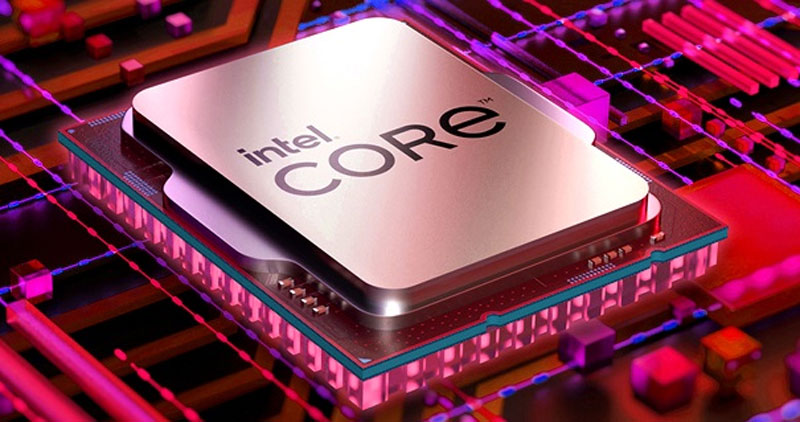
Chinese media ECSM has obtained what it claims is an Intel Core i5-14600K processor and tested it in several CPU-bound benchmarks. The unit performed somewhat better than its direct predecessor, the Core i5-13600K, albeit at the cost of higher voltage and power consumption. Meanwhile, these early test results must be taken with a grain of salt since we are probably dealing with pre-production hardware.
Intel's Core i5-14600K belongs to the 'Raptor Lake Refresh' family of CPUs. It carries six high-performance Raptor Cove cores running at 3.50 GHz base clock and up to 5.30 GHz turbo (+200 MHz vs. its predecessor) along with eight energy-efficient Gracemont cores running at up to 4.0 GHz (+100 MHz). Like its direct predecessor, the Core i5-13600K, the new CPU has a 24 MB L3 cache and has a PBP of 125W. Meanwhile, the new unit has a core voltage of 1.2 V, whereas its ancestor is happy with 1.14 V.
Journalists from ECSM tested the new CPU in Cinebench R23, Cinebench 2024, and CPU-Z. Performance gains obtained from Intel's Core i5-14600K compared to the company's Core i5-13600K vary from 2.5% to 10.3%, depending on the benchmark. Meanwhile, the CPU drew 160W of power during the benchmarking. However, there are some things to keep in mind here.
Performance of Intel's Core i5-13600K vs Core i5-14600K
| null | Core i5-13600K | Core i5-14600K | Performance Gain (%) |
| Cinebench R23 | Single-Thread | 2021 | 2072 | 2.5 |
| Cinebench R23 | Multi-Thread | 24320 | 25270 | 3.9 |
| Cinebench 2024 | Single-Thread | 115 | 124 | 7.8 |
| Cinebench 2024 | Multi-Thread | 1296 | 1430 | 10.3 |
| CPU-Z | Single-Thread | 819 | 868 | 6 |
| CPU-Z | Multi-Thread | 9847 | 10250 | 4.1 |
The ECSM journalists decided not to share details about the testbed they used, significantly reducing the credibility of the results. Furthermore, since these benchmarks are not among our typical CPU tests, we had to Google results for the Core i5-13600K. We found the data at Guru3D for CPU-Z, CPU-Monkey for Cinebench R23 (single-core, multi-core), and CPU-Monkey for Cinebench 2024 (single-core, multi-core). Meanwhile, neither of these websites revealed the configurations of their testbeds, so the comparison may not be completely accurate.
Finally, these are synthetic benchmarks and have little bearing on real-life applications, so while we can say that the new Core i5-12600K 'Raptor Lake Refresh' is faster than its direct predecessor, we can hardly confirm how much faster this CPU is in actual games or professional applications.
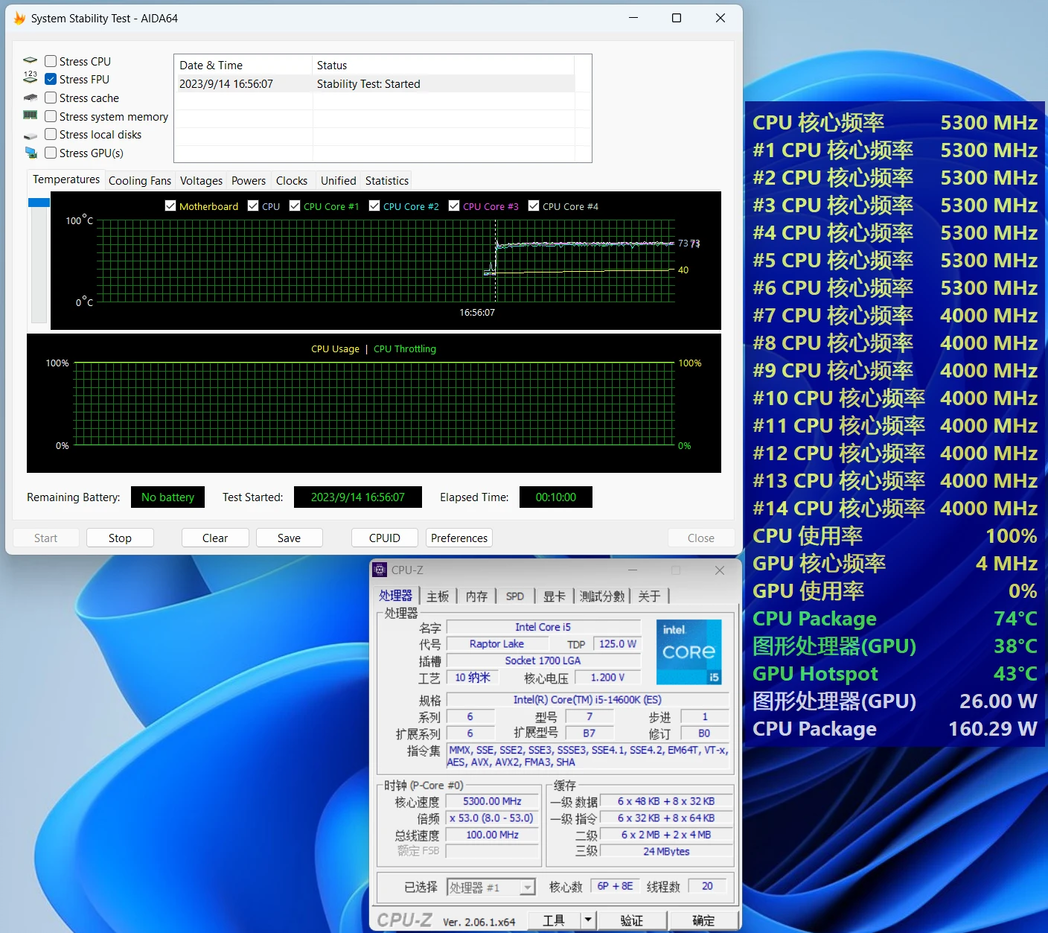
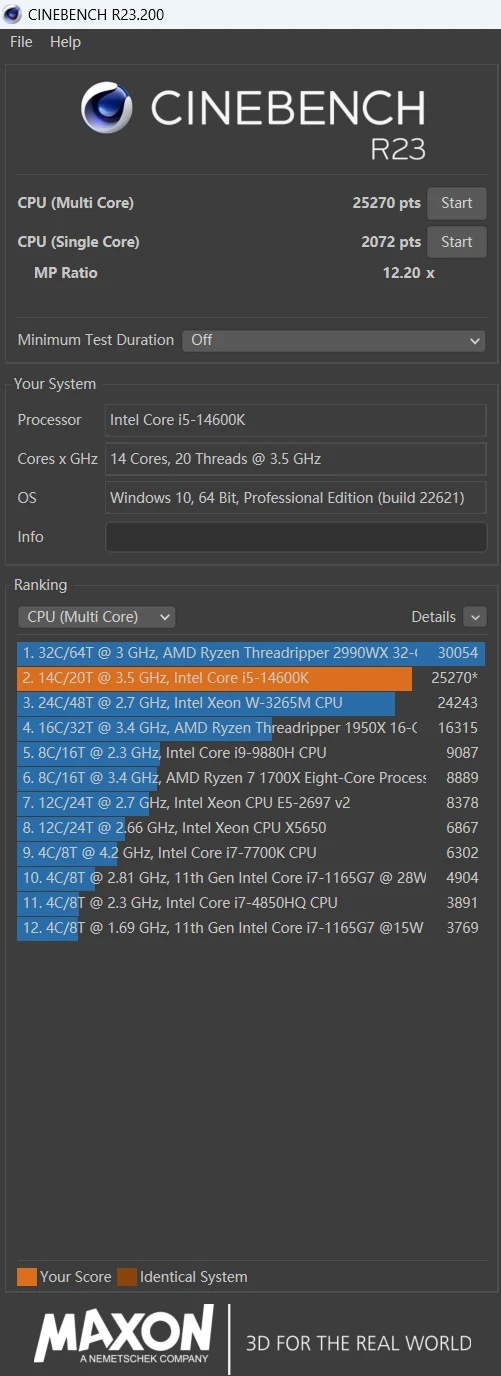
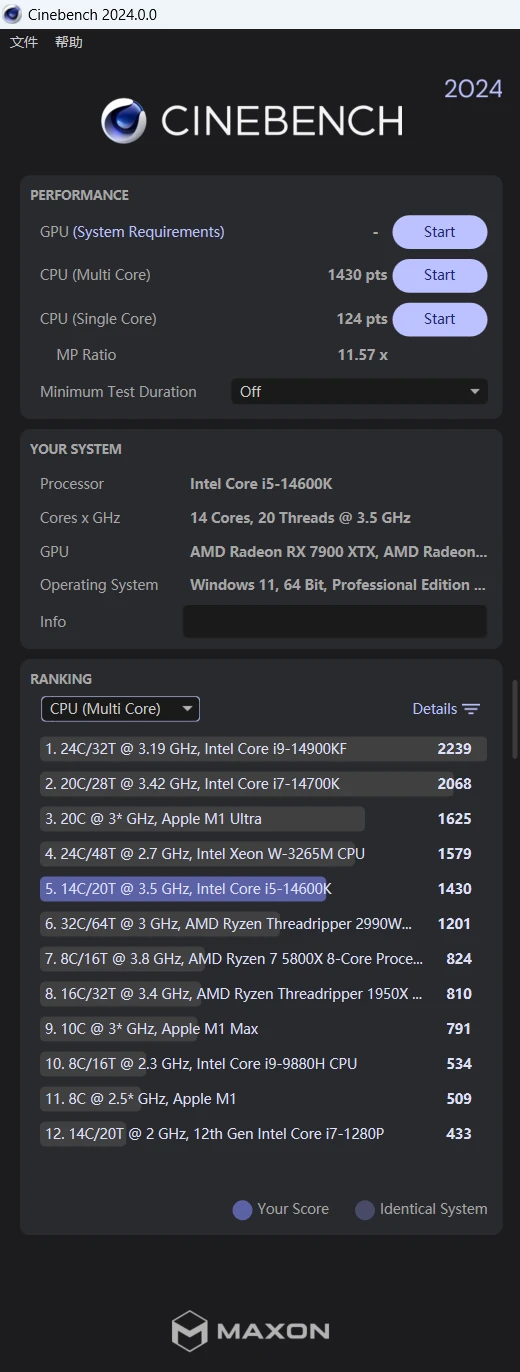
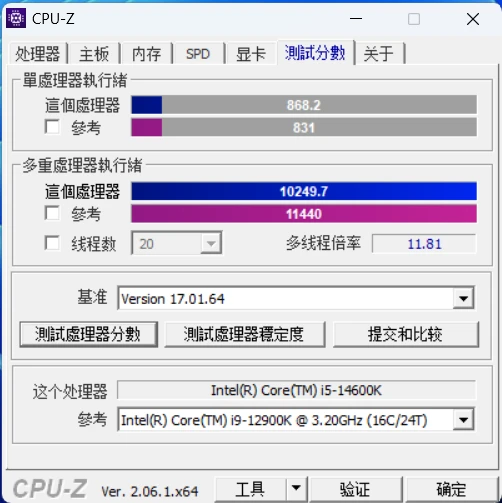
Get Tom's Hardware's best news and in-depth reviews, straight to your inbox.

Anton Shilov is a contributing writer at Tom’s Hardware. Over the past couple of decades, he has covered everything from CPUs and GPUs to supercomputers and from modern process technologies and latest fab tools to high-tech industry trends.
-
salgado18 An AI would write the same article, except the "we had to google results of the 13600k, but systems don't match, so be cautious", as it would have no idea what the numbers meant, and would publish everything as true.Reply -
salgado18 About the i5, doesn't it look like Intel is just refreshing the same fast but hot architecture from years back? Every new generation brings more speed, more clocks, more power etc. It never really goes like Ryzen, which is much more efficient and fast at every generation (not absolutely, it's not fanboyism (I am a fanboy, but it's not)). Won't they ever build something from the ground up and use more than 8 performance cores without fear of setting everything on fire?Reply -
TerryLaze Reply
No, the problem is just that you only get to see benchmarks with the intel CPUs overclocked to the max, just because they are overclockable.salgado18 said:About the i5, doesn't it look like Intel is just refreshing the same fast but hot architecture from years back? Every new generation brings more speed, more clocks, more power etc. It never really goes like Ryzen, which is much more efficient and fast at every generation (not absolutely, it's not fanboyism (I am a fanboy, but it's not)). Won't they ever build something from the ground up and use more than 8 performance cores without fear of setting everything on fire?
As you can see here there are huge improvements for performance, under the exact same power, between the 12th and the 13th gen.
But if the clickbaits only want to show 400W power draw to stir up some traffic then that's the only thing you see.
https://www.computerbase.de/2022-10/intel-core-i9-13900k-i7-13700-i5-13600k-test/2/Multi-Core-Leistung je TDP-Klasse, normiert auf Core i7-13700K 65 Watt
CPU (Kerne)45 Watt (69 %)65 Watt (100 %)88 Watt (135 %)125 Watt (192 %)142 Watt (218 %)181 Watt (278 %)230 Watt (354 %)241/253 Watt (385 %)Unlimited (–)Core i9-13900K (8+16)92 %117 %135 %153 %159 %––184 %186 %Core i7-13700K (8+8)80 %100 %114 %128 %133 %––145 %–Core i5-13600K (6+8)79 %94 %105 %114 %115 %117 %–––Core i9-12900K (8+8)–86 %98 %113 %–––121 %125 %
Also ryzen 5xxx was more efficient than ryzen 7xxx so your idea of AMD going the efficiency route is wrong, they are trying to make their CPUs fast as well, they are just failing at it.
-
healthy Pro-teen Reply
R 7xxx can deliver much better efficiency than previous gen, it's just that the X variants were allowed to consume as much as they could, if you allow a 13th gen i9 to overclock it'll eventually be way less efficient than a 12th i9 running at lower speeds.TerryLaze said:No, the problem is just that you only get to see benchmarks with the intel CPUs overclocked to the max, just because they are overclockable.
As you can see here there are huge improvements for performance, under the exact same power, between the 12th and the 13th gen.
But if the clickbaits only want to show 400W power draw to stir up some traffic then that's the only thing you see.
https://www.computerbase.de/2022-10/intel-core-i9-13900k-i7-13700-i5-13600k-test/2/Multi-Core-Leistung je TDP-Klasse, normiert auf Core i7-13700K 65 Watt
CPU (Kerne)45 Watt (69 %)65 Watt (100 %)88 Watt (135 %)125 Watt (192 %)142 Watt (218 %)181 Watt (278 %)230 Watt (354 %)241/253 Watt (385 %)Unlimited (–)Core i9-13900K (8+16)92 %117 %135 %153 %159 %––184 %186 %Core i7-13700K (8+8)80 %100 %114 %128 %133 %––145 %–Core i5-13600K (6+8)79 %94 %105 %114 %115 %117 %–––Core i9-12900K (8+8)–86 %98 %113 %–––121 %125 %
Also ryzen 5xxx was more efficient than ryzen 7xxx so your idea of AMD going the efficiency route is wrong, they are trying to make their CPUs fast as well, they are just failing at it.
Please refrain from using outdated Data, Mr. Champion. Here it's obvious that within reasonable clock-speeds, Zen 4 can be incredibly efficient. -
TerryLaze Reply
How is it outdated if your table shows the exact same thing that mine does?healthy Pro-teen said:R 7xxx can deliver much better efficiency than previous gen, it's just that the X variants were allowed to consume as much as they could, if you allow a 13th gen i9 to overclock it'll eventually be way less efficient than a 12th i9 running at lower speeds.
Please refrain from using outdated Data, Mr. Champion. Here it's obvious that within reasonable clock-speeds, Zen 4 can be incredibly efficient.
The 5950x is still more efficient than the 7950x in your table and by a pretty decent amount.
Also I didn't say that ryzen isn't efficient or can't be efficient, like so many people do say about intel, I said that AMD is making their newer CPUs less efficient than their previous ones to make them faster.
Less efficient does not mean not efficient. -
healthy Pro-teen Reply
AMD did make the X variants less efficient by allowing them to boost their power as much as the temperatures, which is indeed making them less efficient. But the fact is that though you said "so your idea of AMD going the efficiency route is wrong", we can see that AMD has gone the efficiency route with the non-X series. They have gone both routes.TerryLaze said:How is it outdated if your table shows the exact same thing that mine does?
The 5950x is still more efficient than the 7950x in your table and by a pretty decent amount.
Also I didn't say that ryzen isn't efficient or can't be efficient, like so many people do say about intel, I said that AMD is making their newer CPUs less efficient than their previous ones to make them faster.
Less efficient does not mean not efficient.
"they are trying to make their CPUs fast as well, they are just failing at it."
That makes it seem like AMD haven't been able to improve gen over gen. AMD is indeed leaving efficiency on the table with the X series, but the non X series are more efficient, and that means that, on a whole AMD is both making their CPUs less efficient, and more efficient.
7950X is less efficient than 5950X, as the former has unlocked power limits. I knew that already, and never claimed otherwise. I just said that it can be more efficient, unless power unlocked like the X series.
I thought that your graph was outdated because there was no data regarding the non X series which launched later.
Salgado18 misassumed that Intel CPUs were getting ever more power hungry because he presumably looked at benchmarks of only those CPUs that were overclocked to the max. But you did the exact same, and only looked at CPUs that are overclocked to the moon (as high as temperature allows), and ignored benchmarks that use power limited CPUs (non X variant or power limited X variants), even though you did use power limited Benchmarks for the Intel CPUs!
As you can see here there are huge improvements for performance, under the exact same power, between the 5th and the 7th gen.
But if the clickbaits only want to show 300W power draw to stir up some traffic then that's the only thing you see.
ECO mode is essentially power limiting, just like what you used comparing 12th and 13th gen.
Comparing 7950X 105W and 5950X stock (105W) is fair as they have the same TDP.